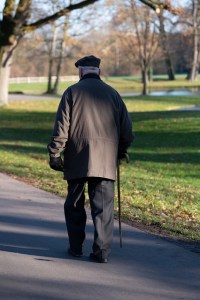
Image taken from the research paper
Researchers in Sweden used this method and found there is an ongoing multifaceted exclusion of citizens in the built environment. This is despite current building regulations. Also, it doesn’t meet the aim of inclusion and international conventions. However, there are opportunities to change this with knowledge about enablers in the built environment. The researchers point universal design as an important planning variable to bring about change. The research paper has a lot of excellent information, much of which planners and disability advocates hear anecdotally. This paper documents the issues well and in detail.The necessary enablers
-
- Benches, or seating were the most mentioned during the go-along activities. These are a decisive factor for spending a day in the city centre. People would walk more if they could also sit.
- Access to public toilets was also critical. Finding them, having access, and in some cases, navigating payment systems all pose problems. Again, another factor in visiting the city.
- People who live outside the city centre need flexible mobility systems – public transport, plus being able to use a car and then parking the car.
- Lighting in public places, clear signage and orientation board were also important along with handrails in challenging environments.
Planning process needs a re-think
The researchers argue that there is an urgent need to rethink the planning processes to account for human diversity. It’s essential to move away from notions of an ‘average’ person or the idea of normal. There is a gap between what building regulations state as accessible and the the lived experience of accessibility (or inaccessibility). As the researchers say,“The pointing out of the necessary enablers is important knowledge to achieve accessibility also in an overall, entire-city-perspective. The concept and practice of Universal Design is a key to pursuing such a development.”
The title of the research paper is, Is the City Planned and Built for me? Photos highlight some of the key issues experienced by participants. There is a lot of really good information in this paper.Go-along neighbourhood research
The “Go-Along” research method is a way of observing people in their local neighbourhood to see the streets from their perspective. It allows participants to tell their stories about the things they like and don’t like when getting out and about.
From the abstract
Sixteen go-along interviews were carried out with older people aged 59–90. The participants took on an expert role in their own everyday life and guided the researcher through the physical and social environments of their neighbourhood. The go-alongs were documented with a GoPro camera. The data were analysed using situational analysis and was grouped into thematic categories. Our findings conclude that social interaction is the overall motivator for going outdoors and that dimensions of pavements, the seating hierarchy, the purpose of lawns, sheltered spaces and ‘unauthorised’ places are all neighbourhood design elements that matter in this regard. The findings suggest to consider age-friendly details as the starting point for social interaction, to target the appropriate kind of age-friendly programs and to enhance empowerment through physical spaces. The go-along interview as a research method holds the potential for empowering older people and appreciating their diversity.Go-along walking for dementia research
 Understanding the experiences of people with dementia is difficult if they cannot express those experiences well. The next best thing is to observe those experiences. That’s what the go-along walking method is – an observation of how people with dementia experience the environment.
Researchers carried out go-along walking interviews with fifteen people with dementia. They followed this up with sit down interviews that included a family member. The participants’ stories of venturing outdoors showed that they were aware of their changing circumstances. They all shared a sense of vulnerability and not knowing if they could trust strangers to help if they needed it.
Dementia also has a gender dynamic. Male participants were willing to relinquish control to their wives, whilst female participants were prepared to adapt to changing family dynamics. Men still wanted to be seen as independent as this equated to ‘manliness’.
A dementia-friendly environment is one thing, but alleviating the pervading personal sense of vulnerability is also important. Regardless, the research showed that people with dementia are able to take responsibility and create other ways of being in the outside world.
The title of the article is, On being outdoors: How people with dementia experience and deal with vulnerabilities. It’s available for download from ResearchGate.
Understanding the experiences of people with dementia is difficult if they cannot express those experiences well. The next best thing is to observe those experiences. That’s what the go-along walking method is – an observation of how people with dementia experience the environment.
Researchers carried out go-along walking interviews with fifteen people with dementia. They followed this up with sit down interviews that included a family member. The participants’ stories of venturing outdoors showed that they were aware of their changing circumstances. They all shared a sense of vulnerability and not knowing if they could trust strangers to help if they needed it.
Dementia also has a gender dynamic. Male participants were willing to relinquish control to their wives, whilst female participants were prepared to adapt to changing family dynamics. Men still wanted to be seen as independent as this equated to ‘manliness’.
A dementia-friendly environment is one thing, but alleviating the pervading personal sense of vulnerability is also important. Regardless, the research showed that people with dementia are able to take responsibility and create other ways of being in the outside world.
The title of the article is, On being outdoors: How people with dementia experience and deal with vulnerabilities. It’s available for download from ResearchGate.
